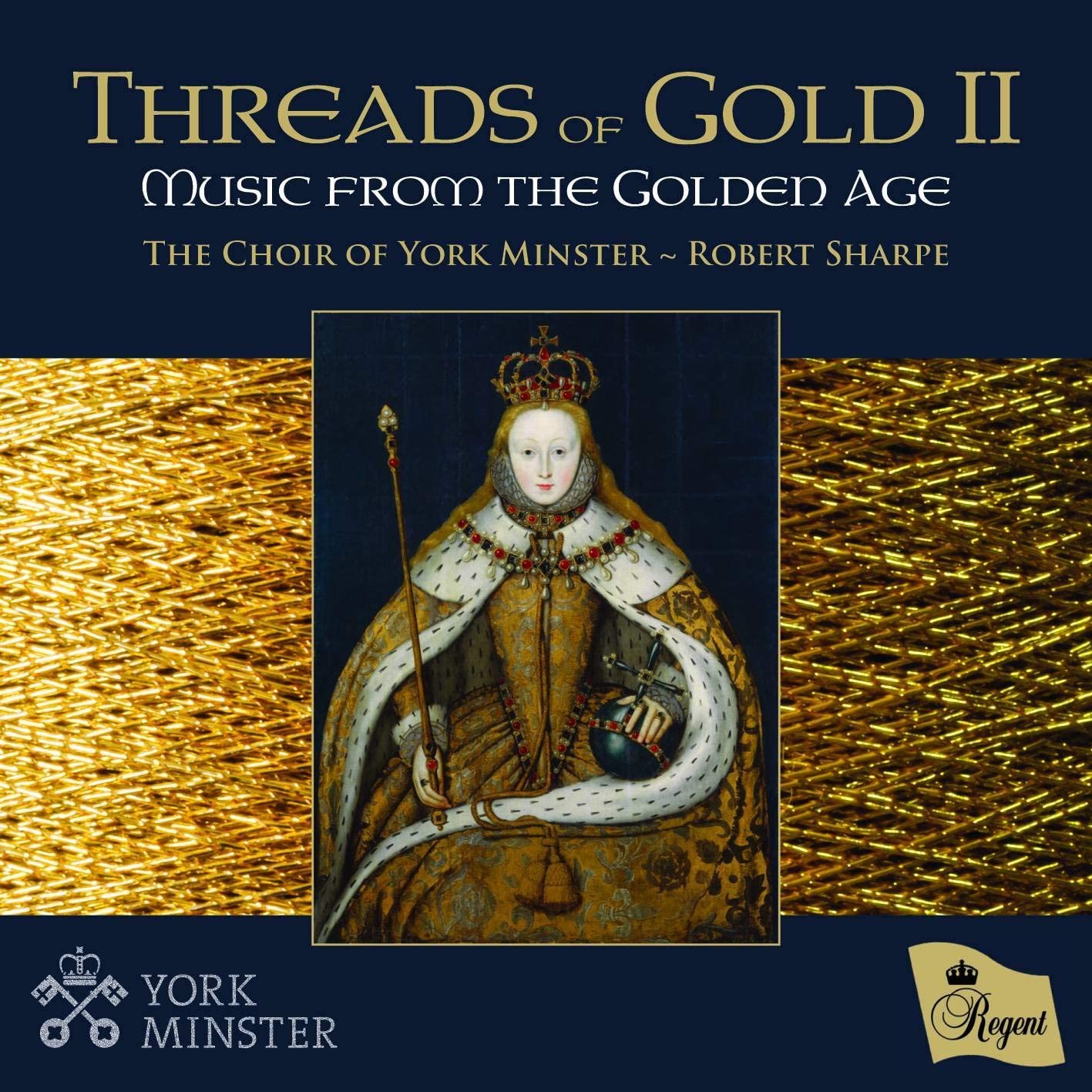The Choir of York Minster, directed by Robert Sharpe, Benjamin Morris organ
74:22
Regent REGCD544
Click HERE to buy this on amazon.co.uk
[These sponsored links help the site remain alive and FREE!]
I gave the first disc in this series, recorded during 2016, a favourable review in EMR dated 27 May 2017, tipping my hat in conclusion to the excellent notes provided by John Lees. This time I am commencing with a short paean to John for another fine commentary on the background to, and contents of, a second superb disc. He is entirely accurate and up to date regarding current musical research on the period, yet is circumspect when contemporary documentation is in short supply, as in the case of Tomkins having been Byrd’s pupil. Meanwhile this is all expressed in a style that is reassuringly scholarly and a pleasure to read, something to which those of us who write about music can all aspire.
As it was in the case of the first disc, the high quality of the booklet notes and the music itself and the performance of the music all complement one another. If Tallis and particularly Byrd did best numerically on that outstanding initial disc, with one or two items emerging from “left field”, then it is the young guns Tomkins and particularly Gibbons who do well on this second offering. Yet while it is Gibbons who scores highest with six items, it is Tomkins who emerges with the only actual premiere on the disc: his beautiful verse anthem Praise the Lord O my soul is new to CD, having previously appeared only on a fine LP, never reissued, by Newport Cathedral Choir in 1983 (Alpha APS 343). That said, works such as his powerful full anthem in eight parts O God the proud are risen and a couple of Gibbons’s verse anthems Behold I bring you glad tidings and We praise thee O Father are quite elusive. One of the less familiar Tudor evening services, William Mundy’s In medio chori, was included on the first disc, and another such is selected here, the Latin setting by Tallis. Disc I began and ended with two of Byrd’s greatest Latin works, and the Latin pattern is followed here, with Robert Parsons’ sublime Ave Maria opening the proceedings, and another of Byrd’s masterpieces Peccantem me quotidie bringing them to a conclusion.
The quality of the singing is every bit on a par with that on the preceding disc. Only listen to the exquisite layering in the final chord of Byrd’s Sing joyfully – quite the best unaccompanied ending to this anthem on disc (there is currently a stirring version by Musica Secreta accompanied fittingly by The English Cornett and Sackbut Ensemble on Chandos CHAN 0789) – in which it is so easy for inner parts to be swamped as everyone exhales on the conclusion of Byrd’s short sharp test of vocal endurance; and to the impact of the trebles’ thrilling entry at “O spare me a little” in Gibbons’s Behold thou hast made my days. Meanwhile the full choir can sing with the intimacy that Byrd would have anticipated in performances of Justorum animae whether domestic (it was published in book 1 of Gradualia 1605 and the volume was approved by Richard Bancroft, then Bishop of London) or clandestine (during illegal Roman Catholic masses). Robert Sharp unerringly chooses tempi appropriate to the individual pieces and to the acoustic of the recording venue, while Benjamin Morris’s accompaniments are sensitive and tasteful. Compared with the previous disc, the Choir itself, recorded during 2019, sounds different, as one would expect three years onwards, and the acoustic seems less reverberant – it is stated simply that disc I was “recorded in York Minster” (perhaps the chancel?) whereas disc II is said to have been recorded in the Lady Chapel. The Choir, who can not only blend mellifluously but also project individual parts where necessary, is a credit not only to York Minster but to the Church of England, while the verse passages are sung responsively by soloists, each with characterful voices not drilled to a uniform sound, who are in turn a credit to the Choir. Everything about this disc is distinguished, and it cannot be praised too highly.
Richard Turbet
